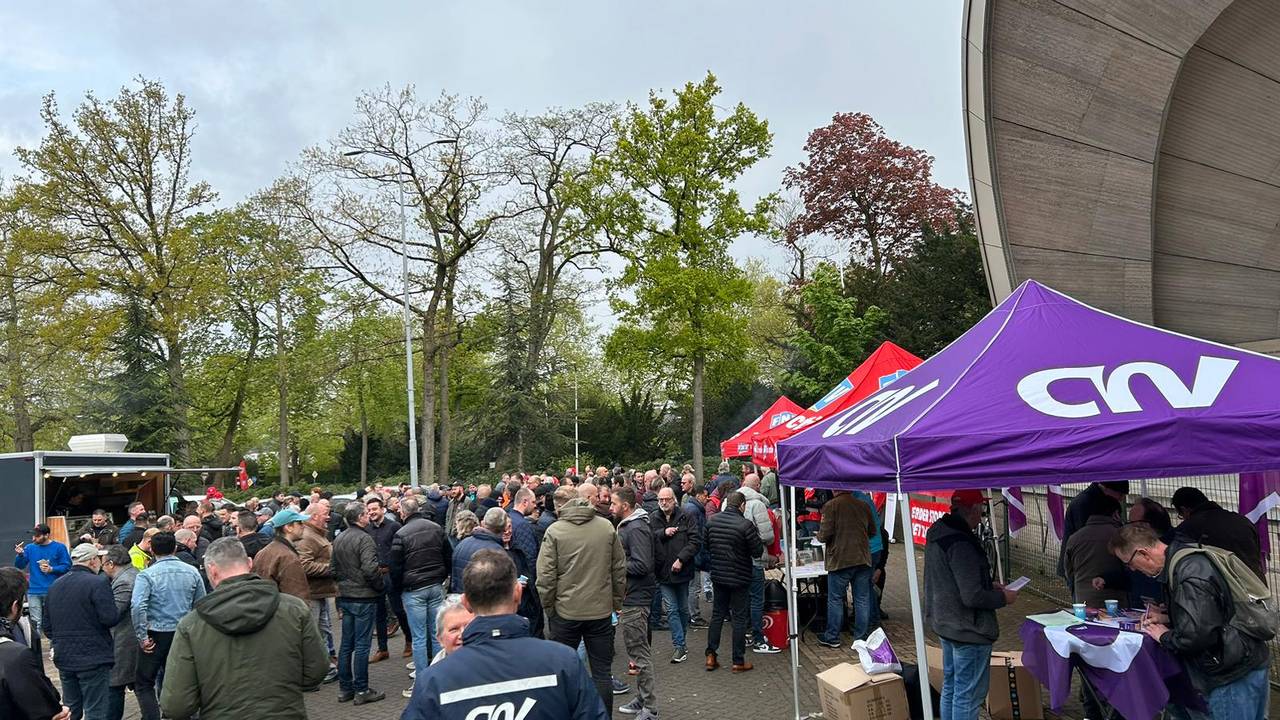Magnum and Cornetto can be the assure of a candy summer season. It was unimaginable to flee them on the field workplace in cinemas, swimming swimming pools or supermarkets. Algida ice cream was part of our life as quickly because the solar began to burn. A minimum of that is what commercials have satisfied us for a number of a long time. However now Unilever, the maker of Algida, has introduced that it desires to focus solely on its “premium manufacturers” sooner or later. And ice cream just isn’t one in every of them. Their illustration will subsequently be the duty of a separate firm. It does not seem to be something vital, nevertheless it’s dangerous information that not solely Magnum and Cornetto, symbols of lightness, are in arduous occasions.
In Übach-Palenberg, a small city within the western a part of North Rhine-Westphalia, the state of affairs is totally completely different. Between fields and wind generators is an ice cream manufacturing unit. It belongs to the Lidl chain. There may be cool air inside, the nozzle provides off a creamy white substance that smells like vanilla. The machine then thrusts picket sticks into the confined mass at excessive pace; then the semi-finished vanilla merchandise are bathed in liquid chocolate with sliced almonds. The results of the method appears like Magnum ice cream. The workers discuss with her as “Magnum Type”. Lidl did not create these basic popsicles or carry them to folks with intelligent promoting, however now they’re making them huge. One million occasions a day. Each day.
In contrast to Unilever, Lidl just isn’t exhibiting indicators of an ice cream disaster. The native manufacturing unit is without doubt one of the largest in Europe.
In cathedrals of bread and chocolate
Ice cream is only one instance of the continuing energy shift in our economic system. When an organization like Lidl, which has lengthy been one of many nation’s greatest meals retailers, produces an increasing number of of its personal meals, it adjustments the construction of the complete economic system. And it’s not essential for the perfect.
The extra influential a retail chain like Lidl turns into, the higher the chance of abusing its energy. Outdated suppliers akin to Unilever immediately turn into opponents who can merely push them out of the market by making it tough for them to achieve prospects. Farmers, alternatively, have to just accept the value that the highly effective chain provides them – as a result of they’ll hardly promote their merchandise to anybody else.
When farmers protested in the beginning of the 12 months, fearing for his or her livelihood, Economic system Minister Robert Habeck (Greens) stated within the Bundestag that “the principle downside is that there’s an excessive amount of on the demand aspect”. What he meant by that is that if retailers turn into more and more highly effective, they’ll entice prospects with particular low cost provides – and achieve income on the expense of suppliers, akin to farmers.
On the similar time, the more and more highly effective Lidl is just a very powerful consultant of the Schwarz group, which additionally consists of Kaufland, which operates almost 14,000 shops in 30 international locations. The retail big, primarily based in Neckarsulm, Baden-Württemberg, employs greater than 575,000 folks.
The outcomes will be seen in lots of merchandise that we put within the cart nearly each time we store: ice cream, chocolate, espresso, pasta, bread. Virtually unnoticed, Lidl has turn into one of many largest meals producers in Germany, maybe even the most important. New information exhibits that they’ve already overtaken the Oetker firm, which was nonetheless primary available on the market in 2022, with the worth of all manufactured meals.
The ability shift within the meals trade just isn’t restricted to Lidl. Additionally it is the results of the transformation of 1 German invention: low cost shops. Aldi’s founders, Karl and Theo Albrecht, constantly minimize prices within the Nineteen Sixties and created a enterprise mannequin that set requirements for the complete grocery trade. On the finish of this growth, the 4 huge gamers we all know at the moment remained in Germany: Lidl, Aldi, Rewe with its low cost arm Penny and Edeka with its low cost arm Netto. Collectively, the Large 4 management about 80 p.c of Germany’s grocery commerce.
2024-05-27 15:03:06
#kingdom #gluttons #Lidl


